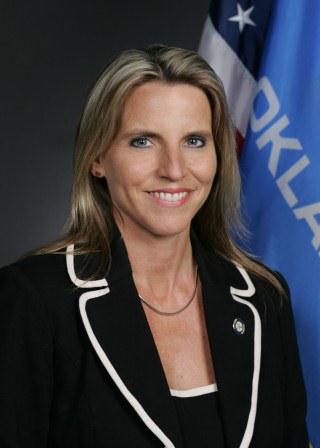Bill Ensuring Rights of Family Caregivers Signed into Law
 Sen. A.J. Griffin
Sen. A.J. Griffin
Sen. A.J. Griffin and Rep. Harold Wright applauded the signing of SB 1516, a continuation of the Lay Caregivers Act, which was passed in 2014. The Lay Caregivers Act allows hospital patients to designate a lay caregiver upon formal admission to a hospital facility and requires hospitals to notify the designated caregiver of the patients discharge to the patients residence or another licensed facility. The law also requires hospitals to consult with designated caregivers regarding the aftercare needs of hospital patients.
SB 1516 now requires the Oklahoma State Board of Health to request verification of compliance with the Lay Caregivers Act in hospital license and license renewal applications. Through this process, the Oklahoma State Board of Health will now have the ability to verify compliance through its inspection and survey processes.
Griffin was the principal Senate author of the bill and noted the important role unpaid family caregivers play in our communities. According to AARP Oklahoma, each year unpaid family caregivers provide over $6 billion in uncompensated care to their loved ones, said Griffin, R-Guthrie. Being equipped to provide proper care to your loved one once discharged from the hospital can not only save money, but it can also save lives.
As the House author of the original Lay Caregivers Act, I was glad to see the progress that has been made in better preparing our family caregivers to care for their loved ones, said Wright, R-Weatherford. SB 1516 will further ensure that the Lay Caregivers Act is consistently administered across the state, providing for better care for our loved ones and saving our citizens money wasted on preventable readmissions to the hospital.
AARP Oklahoma, which supported SB 1516, thanked Griffin and Wright for their support and commitment of Oklahomas family caregivers. At any given time, there are between 500,000 and 600,000 Oklahomans providing some type of caregiving services and supports to a loved one, friend or neighbor, said Sean Voskuhl, AARP Oklahoma State Director. These services are crucial in enabling individualsespecially older Oklahomans- to remain healthy and in their own homes as long as possible rather than in costly long-term care facilities like nursing homes.
Griffin and Wright expressed their gratitude and appreciation for the hundreds of thousands of Oklahomans who spend a significant amount of their own time, money and energy caring for their loved ones. Oklahoma is defined by its embracement of family, and caring for a loved one is one of the toughest, but most rewarding things one can do, Griffin said.
Our families are central to our society, and systematically incorporating them into the hospitalization process will only better their ability to provide care to their loved ones, ultimately increasing health outcomes and lowering costs, Wright said.
 Oklahoma Senate
Oklahoma Senate

